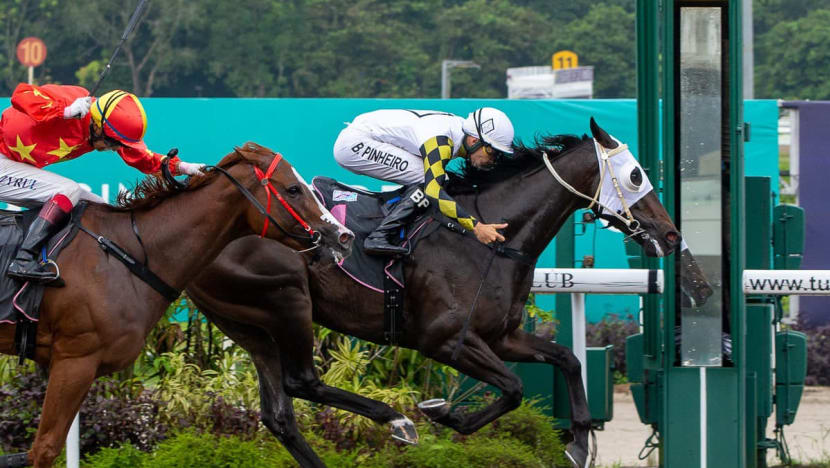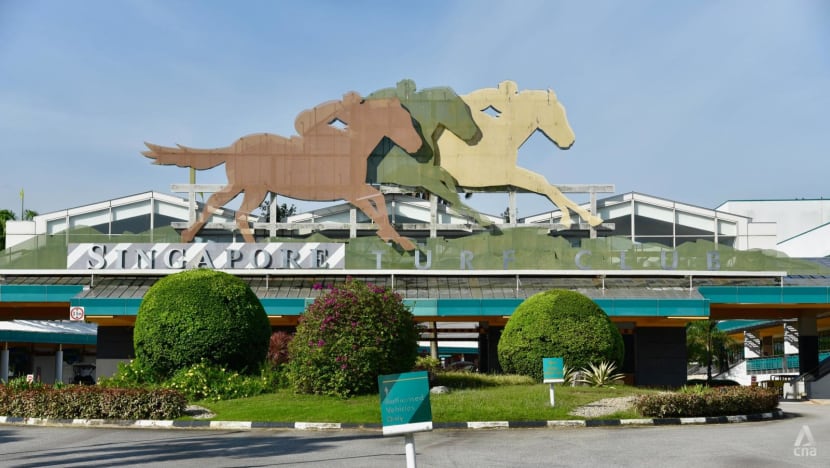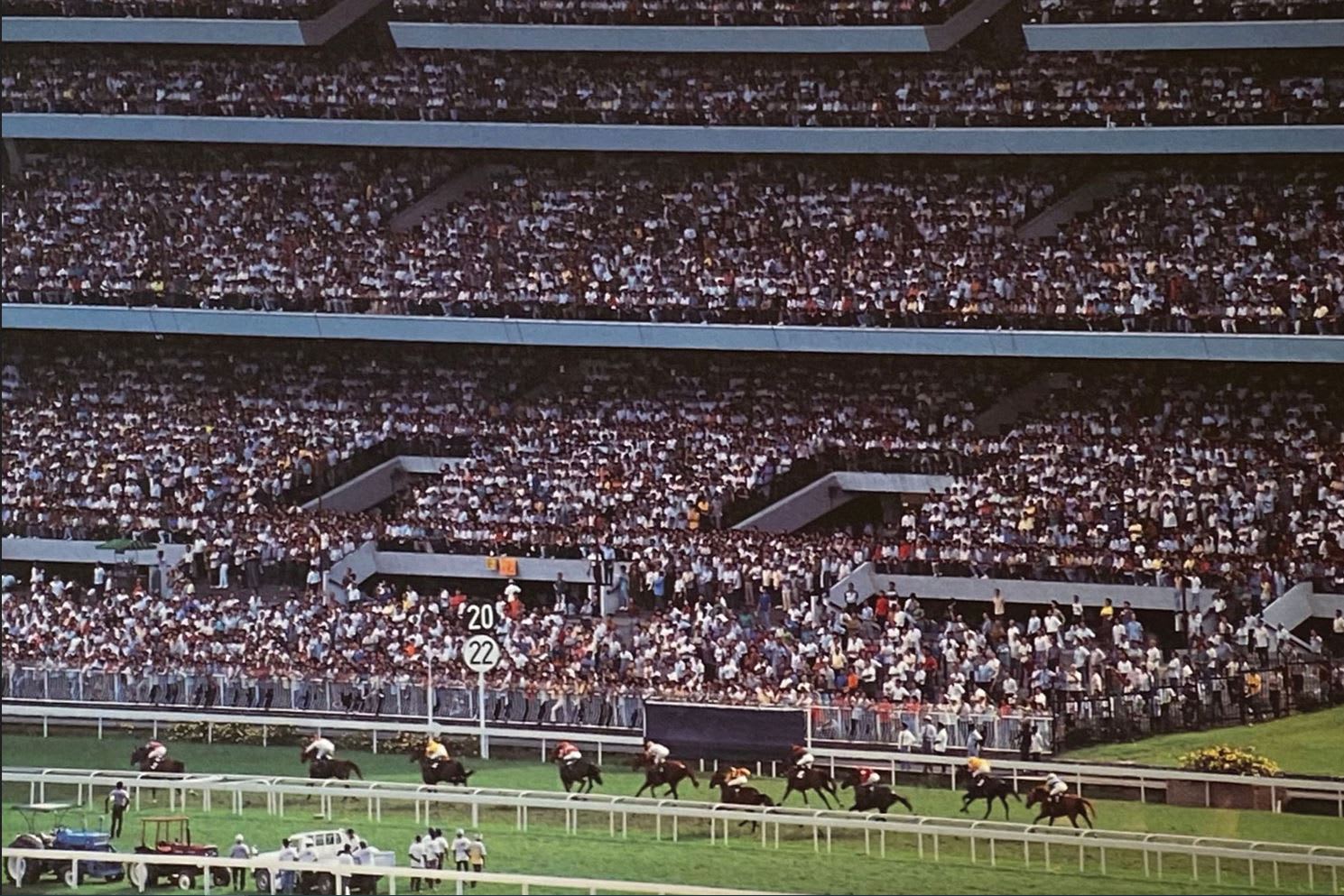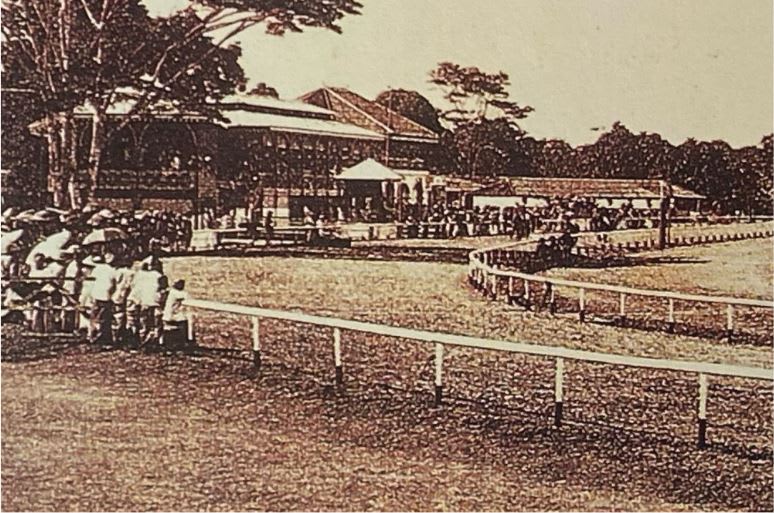Commentary: Closure of Singapore Turf Club was a long time coming
The signs of the end of Singapore Turf Club have long been there, with falling attendance, revenue and interest in horse racing, says sports writer Mathew Scott.

Horses racing at the Singapore Turf Club in June 2023. (Photo: Facebook / Jason Lim Racing Stable)
HONG KONG: History will show that the post-mortem examinations began long before the Singapore Turf Club had officially turned cold.
Its last race card on Oct 5, 2024 will feature the 100th Grand Singapore Gold Cup, the jewel in the crown of local horse racing. The gates at the Kranji racecourse will be locked for the last time in March 2027, and more than 180 years of horse racing will be consigned to history.
But it was the announcement on Monday (Jun 5) that prompted chatter, with the international racing community asking how exactly the end had come to pass.
In retrospect the signs have long been there, with the club straining under the weight of falling attendances and revenues, and with the wealth of other entertainment (and gambling) choices now on offer to the public in Singapore. But maybe the comfort found in history simply stopped people from confronting the challenges of the here and now.
“The shock is that racing in Singapore has always seemed such an important part of local culture,” is how the now-retired, Hong Kong-based Australian trainer John Moore put it.



HINTS OF THE BEGINNING OF THE END
Moore is one of those who should know about Singapore racing. Long before becoming one of international racing’s most successful trainers - with a record of more than 1,700 race wins to his name - Moore had arrived in Singapore in 1970 as a 20-year-old amateur jockey, looking for opportunities to make his mark on the world.
In those days, racing was held at the Bukit Timah Racecourse, where there were gallops on the grass through the trees and a sense that racing was part of the very fabric of Singapore. “You could really sense that history and the excitement, even in the 1970s, at every racing meeting with the huge crowds and the noise,” Moore recalled. “I loved coming back over the years.”
It’s little wonder Moore would go on to claim one of the city’s top races, the Group One Singapore Airlines International Cup, three times (2013 to 2015). But he said that the first hint of the beginning of the end for Singapore racing came in 2015, when the decision was made to cease staging that particular race. As a result, the country lost a little of its lustre on the global scene.
Racing in Singapore has noticeably scaled down over the past decade. According to the Singapore Turf Club, crowds averaged around 2,600 per race in 2022, a significant drop from the 11,000 who attended each meeting in 2010. Revenue from horse wagering, including overseas races, declined from S$1.8 billion (US$1.3 billion) in 2010 to S$1.1 billion (US$800,000) in 2022.
The Turf Club put on a stoic face to the public. While “saddened” by the government’s decision to close and redevelop the 120ha facility, it recognised that the nation needs land for housing and uses more in tune with people’s everyday lifestyles - arguments that are hard to dispute, given Singapore’s chronic land shortage.
SUCCESS STORIES IN OTHER RACING JURISDICTIONS
The news brings into sharp focus problems horse racing the whole world has experienced over the past decades. Even before the effects of the global pandemic, revenue, attendance and interest in the sport have dwindled in key racing jurisdictions, particularly the United States where one major track, Belmont Park in New York, has seen up to an 88 per cent drop in numbers in the past 45 years.
But there have been success stories. Look to Hong Kong, with a similar population and land mass to Singapore. A jockey club turned over a record US$36.9 billion last season (albeit with no casinos to contend with) thanks to a massive and effective publicity machine and the quality of its racing product.
In Australia, betting revenue increases have led to a surge in prize money on offer, luring people to become involved in the sport. The syndication of ownership of racehorses has become so widespread that almost everyone you talk to in the country owns at least a hoof’s share of a horse.
Both jurisdictions see the sport wield significant political influence - and their cases support the old adage that where there's a will, there’s a way. Sadly in Singapore, that didn’t seem to be the case.
Mathew Scott is a Hong Kong-based writer who covers Asian sport and cinema.

















